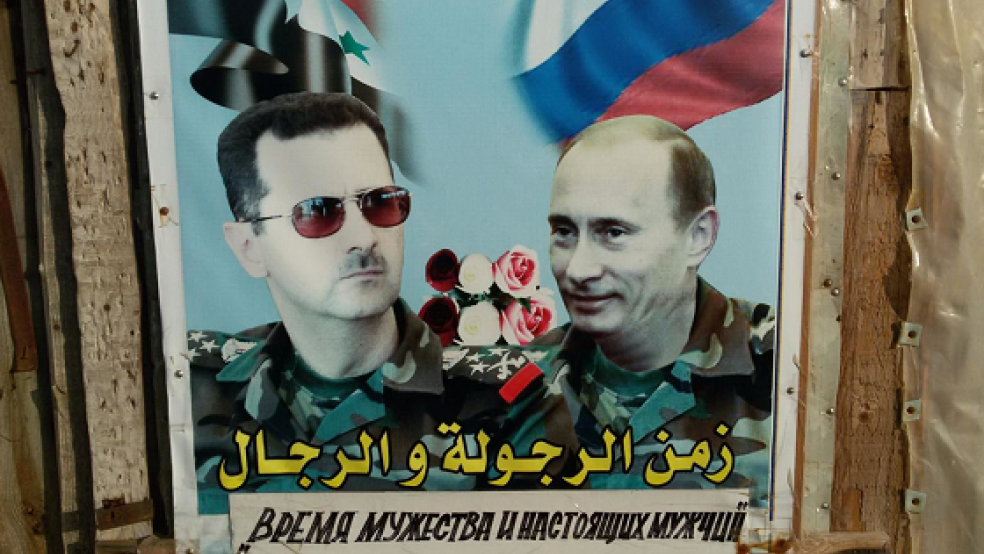Weeks after Russian President Vladimir Putin signaled he would redouble his efforts to end the bloody, years-long civil war in Syria, developments on the ground show Moscow may have pulled a double-cross and systematically provided additional military assistance to the Assad regime to keep it in power.
The latest evidence came Monday, when Reuters reported Russia has positioned more than a half-dozen tanks at a Syrian airfield, indicating that a significant military build-up might take place soon.
Related: How Can You Tell There Are Russian Troops in Syria? Just Look for Some Soldier Selfies
Administration officials, led by Secretary of State John Kerry, have expressed alarm at the recent activity, which reportedly involves the Kremlin using an air corridor over Iraq and Iran to bring in its military equipment and personnel into Syria.
Kerry has contacted his Russian equivalent, Foreign minister Sergey Lavrov, a couple of times about the situation. This week Lavrov said the shipments would continue over American objections.
On Friday, during a global town hall meeting with U.S. troops at Fort Meade, MD, President Obama said Syrian President Bashar al-Assad “is worried enough that he’s inviting Russian advisers in and Russian equipment in.”
“And that won’t change our core strategy, which is to continue to put pressure on ISIL in Iraq and Syria, but we are going to be engaging Russia to let them know that you can’t continue to double-down on a strategy that’s doomed to failure,” he added.
Related: As Putin Targets Dissent, U.S. Democracy Group Banned in Russia
In addition to the tanks now at the airfield near Latakia, an Assad stronghold, Russia has sent hundreds of naval infantry forces to the site and stationed more than 20 anti-aircraft missiles near the city, which will be operated by Moscow’s forces.
The Kremlin has also shipped in combat vehicles and prefabricated housing for its troops, according to U.S. intelligence officials.
Moscow already has a naval presence in the country at the port city of Tartus. Putin may indeed view boasting such a large military footprint in Syria as a path to peace, albeit one back up with steel and ammunition.
Russia is under increased pressure from the international community to explain what exactly it is up to in Syria, something that could come to a head later this month when the United Nations General Assembly convenes in New York City. Putin is supposed to attend the meeting, the first time he will do so in ten years.
Russia remains an ally in the fight against ISIS; it played a central role in negotiating the Iran nuclear deal.





